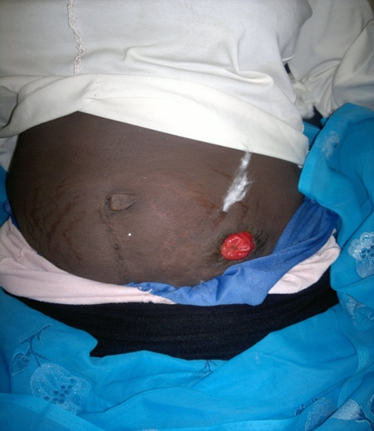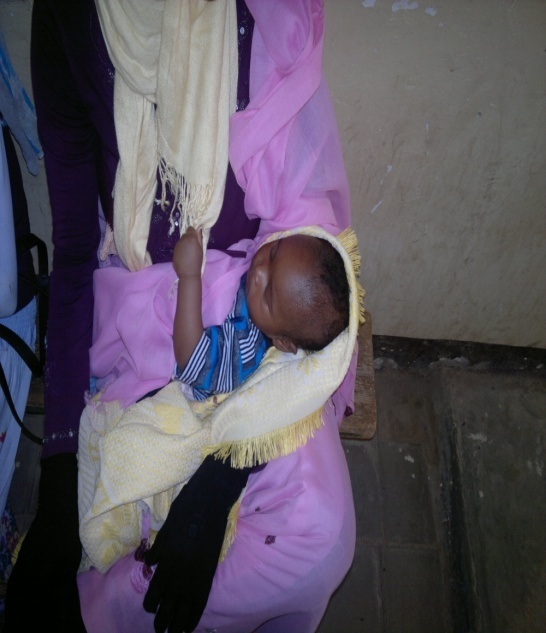-
Paper Information
- Paper Submission
-
Journal Information
- About This Journal
- Editorial Board
- Current Issue
- Archive
- Author Guidelines
- Contact Us
International Journal of Surgical Research
2014; 3(2): 19-21
doi:10.5923/j.surgery.20140302.01
Successful Pregnancy and Delivery in a Young Woman with Permanent Colostomy Due to Rectal Carcinoma: A Case Report
Osman Habeeb MD1, Abdalla Ali MD Frcog2, Fath Elrahman Mohemmed MD3
1Assisstant Professor of Surgery, University of Kassala, Faculty of Medicine and Health Sciences
2Professor of Obs & Gynae, Dean Faculty of Medicine, University of Kassala
3Consultant of Surgery, Kassala Hospital
Correspondence to: Osman Habeeb MD, Assisstant Professor of Surgery, University of Kassala, Faculty of Medicine and Health Sciences.
| Email: |  |
Copyright © 2014 Scientific & Academic Publishing. All Rights Reserved.
Permanent colostomy in a young female patient has a great psycosocial impact; including marital and sexual life. Pregnancy in a women with ostomy possess significant concern in it is management; however the literature addressing this problem revealed minimal information. We reported a 31 years old female with bleeding per-rectum and low rectal mass 3.5 cm from the anal verge. The mass proved to be an adenocarcinoma by biopsy and histopathology and it is stage II by Dukes classification. Abdomino-perineal resection with sigmoid permanent colostomy were performed. Six months after surgery and during routine ultrasound follow-up the patient discovered to be pregnant. She delivered spontaneously via vaginal rote at term with no reported complication. Usually an ostomy is carried out for benign diseases in young women and it is uncommon to see osomaters who become pregnant. Our patient is well adapted to her social and sexual relationship and intimacy in a short period.
Keywords: Pregnancy with colostomy
Cite this paper: Osman Habeeb MD, Abdalla Ali MD Frcog, Fath Elrahman Mohemmed MD, Successful Pregnancy and Delivery in a Young Woman with Permanent Colostomy Due to Rectal Carcinoma: A Case Report, International Journal of Surgical Research, Vol. 3 No. 2, 2014, pp. 19-21. doi: 10.5923/j.surgery.20140302.01.
1. Introduction
- Permanent colostomy in a young female patient has a great psychosocial impact on her marital and sexual life. Furthermore, pregnancy in a woman with ostomy is always a matter of great concern in terms of management [1-3]. Living with a colostomy may seem like a big undertaking. It is similar to other major changes in life [4]. Therefore, having a colostomy will not affect the ability of a woman to become pregnant; unlike ileostomists who will runs a greater risk of her stoma blocking up due to pressure exerted in the intestine. Despite the seriousness of the issues involved therein, the literature addressing this problem reveals minimal information [1, 2].
2. Case Report
- A 31-year old female presented with bleeding per rectum and low rectal mass 3.5 cm from the anal verge. Double contrast barium enema; colonoscopy and C.T scan followed by biopsy and histopathology showed that the mass was an adenocarcinoma at stage II by Duke’s classification. C.T scan of the abdomen revealed no liver metastasis or lymph node enlargement. Hematological and biochemical investigations showed anemia of iron deficiency type (Hb level 9,1x 109/L) and the platelet count was 212 x 109/L. Urea and electrolytes were normal. Carcinoemberyonic antigen (CEA) level was 8.7ng/ml. The patient underwent abdomino-perineal resection with sigmoid permanent colostomy. Six months after surgery routine ultrasound follow-up showed that the patient was pregnant. Since she was not started chemo-radiotherapy, the pregnancy was allowed to complete the full term. (Figure 1). The stoma diameter during pregnancy was slightly increased at 32 weeks gestation. She delivered spontaneously via vaginal route upon completion of the term with no reported complication (Figure 2).Usually an ostomy is carried out for benign diseases in young women and it is uncommon to see osomaters who become pregnant [1-3]. Pregnancy following permanent colostomy due to colorectal cancer is very rare [3] Maunsell and Der Bruke were reported 2 cases of rectal carcinoma and pregnancy but without colostomy [5, 9]. Similarly, Gopal and colleagues have reported that only 3.44% of the pregnant lady had an ostomy due to malignancy and about 79% were secondary to inflammatory bowel diseases as the primary cause [1]. In a pregnant woman, as the fetus grows in the uterus and the woman begins to gain weight, the stoma may begin to protrude, the diameter may increase, and the skin around the stoma may start to flatten out. Furthermore, in a patient with ileostomy, nausea and vomiting associated with morning sickness may be problematic. Fluid and electrolyte imbalances can occur rapidly under these conditions, causing dehydration.
 | Figure (1). Shows the end sigmoid colostomy in a pregnant 30 weeks patient |
 | Figure (2). Shows the patient after successful delivery |
 Abstract
Abstract Reference
Reference Full-Text PDF
Full-Text PDF Full-text HTML
Full-text HTML